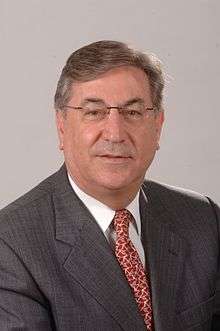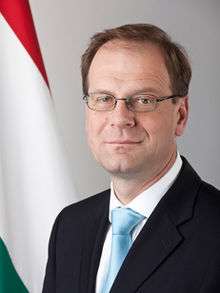Juncker Commission
.jpg)
The Juncker Commission is the European Commission in office since 1 November 2014 and is due to serve until 2019. Its president is Jean-Claude Juncker, who presides over 27 other commissioners (one from each of the states composing the European Union, except Luxembourg, which is Juncker's state). In July 2014, Juncker was officially elected to succeed José Manuel Barroso, who had been re-elected by the European Parliament for a second five-year term in 2009.[1]

Election

In the 2014 parliamentary election, Juncker campaigned as the candidate of the European People's Party (EPP) for the presidency of the European Commission. The EPP won a plurality in parliament, and on 27 June, the European Council nominated him for the post. Later, on 15 July 2014, the European Parliament elected Juncker as the new Commission president.[2][3][4] On 22 October, the European Parliament approved the Juncker Commission in its entirety, and during the 23–24 October 2014 meeting of the European Council, the Council formally appointed the new Commission.[5][6] On 1 November 2014 the new Commission officially assumed office.[7][8]
Juncker has outlined a ten-point agenda for his Presidency focusing on jobs and growth.[9]
College
The following college of commissioners serve under Juncker's presidency[10][11][12]
- Parties
European People's Party (13) Party of European Socialists (8) Alliance of Liberals and Democrats for Europe (5) None (2)
Project teams
Juncker has for the first time proposed a commission that clusters certain members together under designated policy areas. These clusters are known as "Project Teams" and will each be headed by one of the vice presidents.[13] Each team is composed of a core membership in addition to members who may fall under its respective umbrella as needed.[14] Timmermans and Georgieva both oversee all commissioners while the remaining five project teams are as follows:
A Connected Digital Single Market
- Vice President: Andrus Ansip (Digital Single Market)
- Elżbieta Bieńkowska (Internal Market, Industry, Entrepreneurship and SMEs)
- Corina Crețu (Regional Policy)
- Phil Hogan (Agriculture and Rural Development)
- Věra Jourová (Justice, Consumers and Gender Equality)
- Pierre Moscovici (Economic and Financial Affairs, Taxation and Customs)
- Günther Oettinger (Digital Economy and Society)
- Marianne Thyssen (Employment, Social Affairs, Skills and Labour Mobility)
- Vytenis Andriukaitis (Health and Food Safety)
- Jonathan Hill/Valdis Dombrovskis (Financial Stability, Financial Services and Capital Markets Union)
- Carlos Moedas (Research, Science and Innovation)
- Tibor Navracsics (Education, Culture, Youth and Sport)
- Margrethe Vestager (Competition)
A Deeper and Fairer Economic and Monetary Union
- Vice President: Valdis Dombrovskis (Euro and Social Dialogue)
- Elżbieta Bieńkowska (Internal Market, Industry, Entrepreneurship and SMEs)
- Corina Crețu (Regional Policy)
- Věra Jourová (Justice, Consumers and Gender Equality)
- Jonathan Hill/Valdis Dombrovskis (Financial Stability, Financial Services and Capital Markets Union)
- Pierre Moscovici (Economic and Financial Affairs, Taxation and Customs)
- Tibor Navracsics (Education, Culture, Youth and Sport)
- Marianne Thyssen (Employment, Social Affairs, Skills and Labour Mobility)
A New Boost for Jobs, Growth and Investment
- Vice President: Jyrki Katainen (Jobs, Growth, Investment and Competitiveness)
- Elżbieta Bieńkowska (Internal Market, Industry, Entrepreneurship and SMEs)
- Miguel Arias Cañete (Climate Action and Energy)
- Corina Crețu (Regional Policy)
- Jonathan Hill/Valdis Dombrovskis (Financial Stability, Financial Services and Capital Markets Union)
- Pierre Moscovici (Economic and Financial Affairs, Taxation and Customs)
- Günther Oettinger (Digital Economy and Society)
- Violeta Bulc (Transport)
- Marianne Thyssen (Employment, Social Affairs, Skills and Labour Mobility)
- Vytenis Andriukaitis (Health and Food Safety)
- Dimitris Avramopoulos (Migration, Home Affairs and Citizenship)
- Johannes Hahn (European Neighbourhood Policy and Enlargement Negotiations)
- Phil Hogan (Agriculture and Rural Development)
- Věra Jourová (Justice, Consumers and Gender Equality)
- Cecilia Malmström (Trade)
- Carlos Moedas (Research, Science and Innovation)
- Tibor Navracsics (Education, Culture, Youth and Sport)
- Karmenu Vella (Environment, Maritime Affairs and Fisheries)
- Margrethe Vestager (Competition)
A Resilient Energy Union with a Forward-Looking Climate Change Policy
- Vice President: Maroš Šefčovič (Energy Union)
- Elżbieta Bieńkowska (Internal Market, Industry, Entrepreneurship and SMEs)
- Miguel Arias Cañete (Climate Action and Energy)
- Corina Crețu (Regional Policy)
- Phil Hogan (Agriculture and Rural Development)
- Karmenu Vella (Environment, Maritime Affairs and Fisheries)
- Carlos Moedas (Research, Science and Innovation)
- Violeta Bulc (Transport)
- Věra Jourová (Justice, Consumers and Gender Equality)
- Cecilia Malmström (Trade)
- Günther Oettinger (Digital Economy and Society)
- Pierre Moscovici (Economic and Financial Affairs, Taxation and Customs)
- Marianne Thyssen (Employment, Social Affairs, Skills and Labour Mobility)
- Margrethe Vestager (Competition)
A Stronger Global Actor
- Vice President: Federica Mogherini (Foreign Affairs and Security Policy)
- Johannes Hahn (European Neighbourhood Policy and Enlargement Negotiations)
- Cecilia Malmström (Trade)
- Neven Mimica (International Cooperation and Development)
- Christos Stylianides (Humanitarian Aid and Crisis Management)
- Dimitris Avramopoulos (Migration, Home Affairs and Citizenship)
- Miguel Arias Cañete (Climate Action and Energy)
- Violeta Bulc (Transport)
A European Agenda on Migration
In 2015, when European migrant crisis unfolded, new project team was formed.[15]
- First Vice President: Frans Timmermans (Better Regulation, Interinstitutional Relations, the Rule of Law and the Charter of Fundamental Rights)
- Federica Mogherini (Foreign Affairs and Security Policy)
- Dimitris Avramopoulos (Migration, Home Affairs and Citizenship)
- Johannes Hahn (European Neighbourhood Policy and Enlargement Negotiations)
- Neven Mimica (International Cooperation and Development)
- Christos Stylianides (Humanitarian Aid and Crisis Management)
- Věra Jourová (Justice, Consumers and Gender Equality)
- Julian King (Security Union)[16]
References
- ↑ Barroso names new EU commission team. Euronews. Retrieved 27 November 2009.
- ↑ Parliament elects ‘politically ecumenical’ Juncker as Commission President EurActiv
- ↑ Blow to Cameron as centrist MEPs back Juncker for European commission job The Guardian
- ↑ Baker, Luke (2014-06-23). "Battle over Juncker underlines EU parliament's 'adulthood' | Reuters". Uk.reuters.com. Retrieved 2016-05-04.
- ↑ "EUROPEAN COUNCIL DECISION appointing the European Commission" (PDF). European Council. 22 October 2014. Retrieved 2 November 2014.
- ↑ "European Council (23 and 24 October 2014) ‒ Conclusions" (PDF). European Council. 24 October 2014. Retrieved 2 November 2014.
- ↑ "The new European Commission – Parliament elects new European Commission". European Parliament. 23 October 2014. Retrieved 1 November 2014.
- ↑ "Juncker Commission takes office". European Commission. 1 November 2014. Retrieved 1 November 2014.
- ↑ Jean-Claude Juncker: My Agenda for Jobs, Growth, Fairness and Democratic Change The Parliament Magazine
- ↑ Cerulus, Laurens (July 10, 2014). "Juncker wants more women in new Commission team".
- ↑ "Poland, Italy nominations leave Juncker needing four more commissioners –". Euractiv.com. Retrieved 2016-05-04.
- ↑ EU Commission College
- ↑ Vice-presidents to lead teams of commissioners
- ↑ The new structure of the Juncker Commission
- ↑ Juncker Commission. One year on
- ↑ President Juncker consults the European Parliament on Sir Julian King as Commissioner for the Security Union

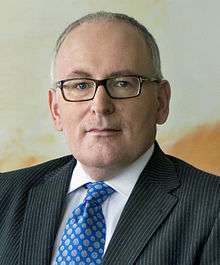
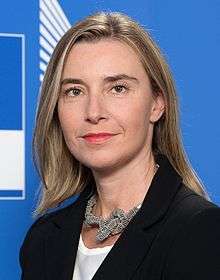
.jpg)
.jpg)




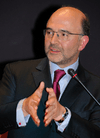
.jpg)
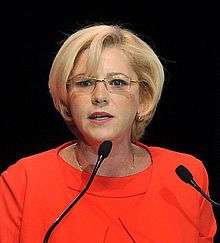


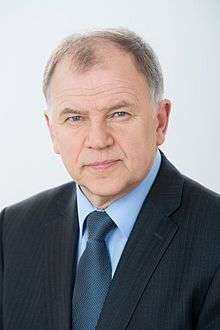
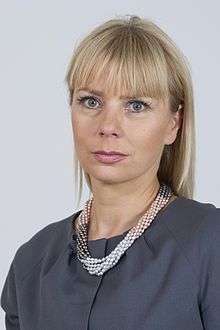
_(2).jpg)
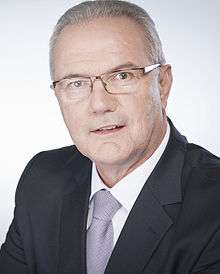
.jpg)


